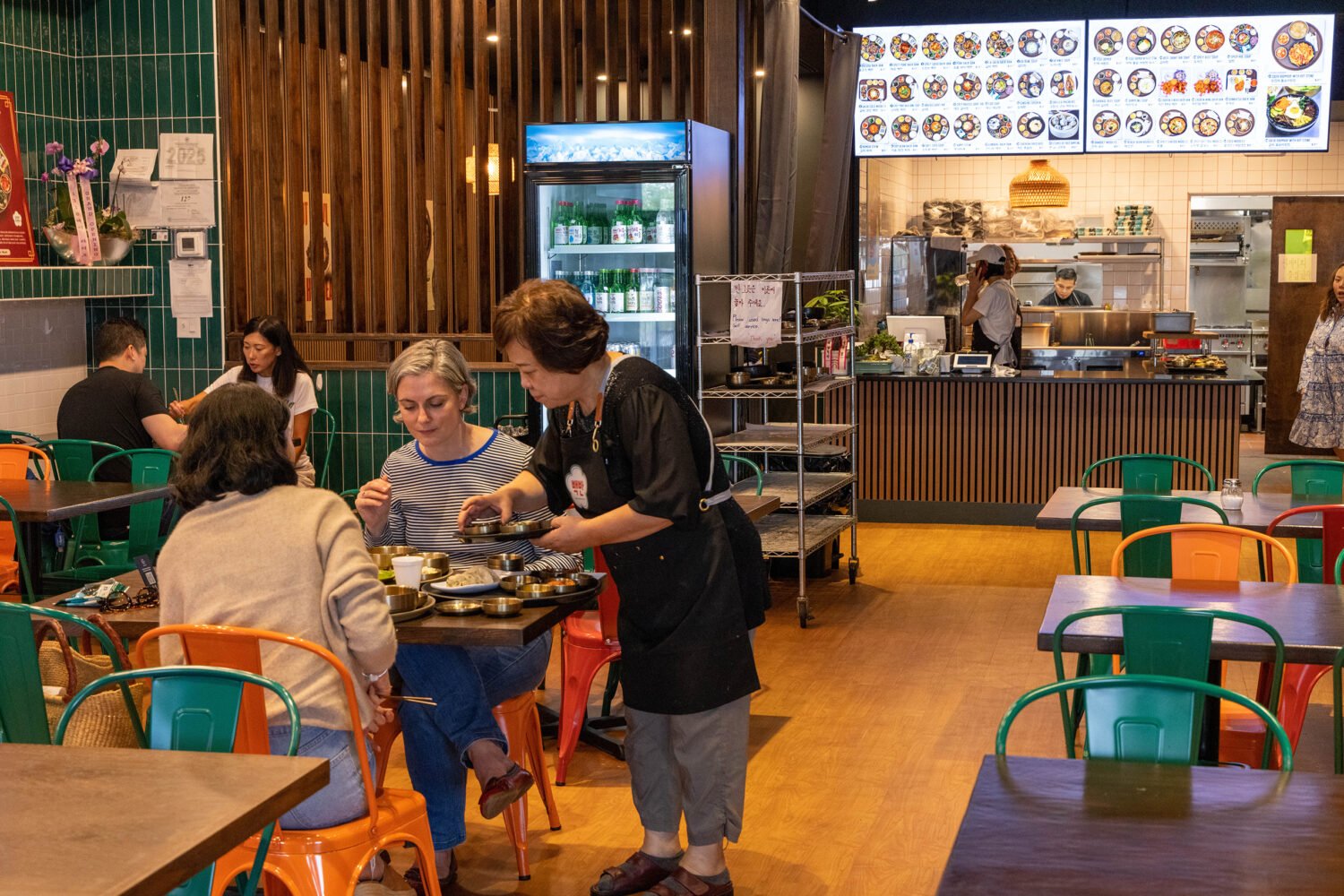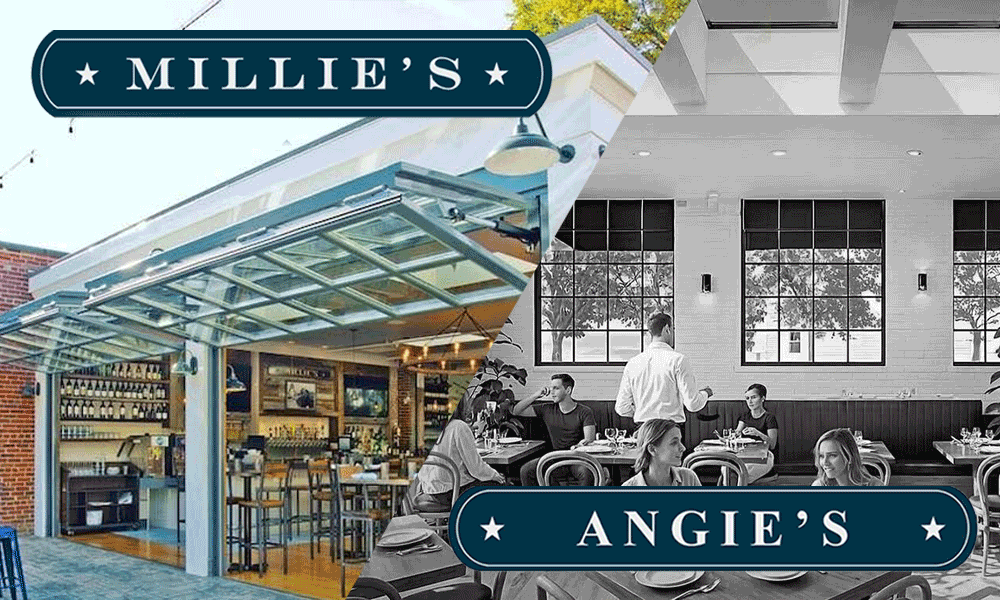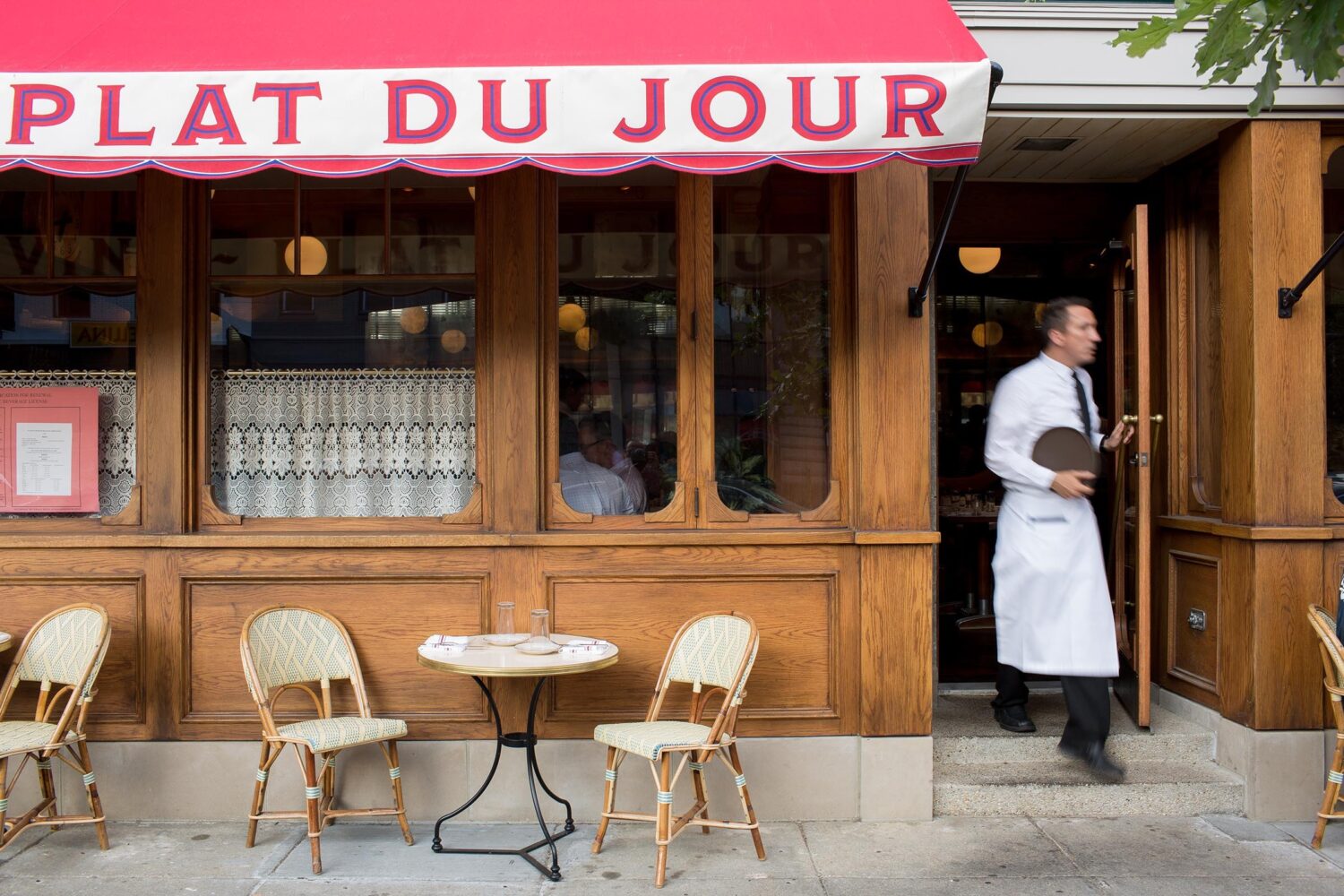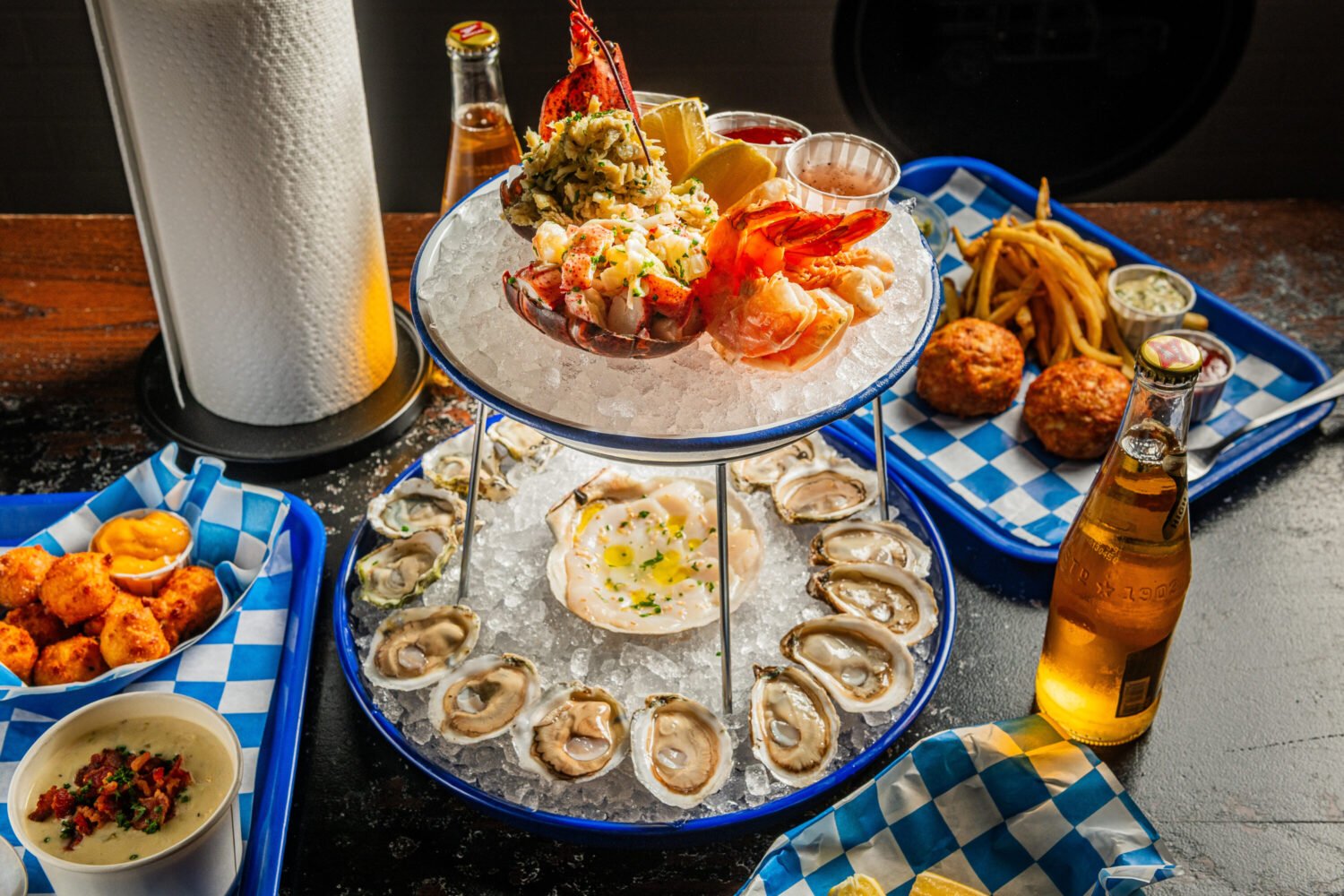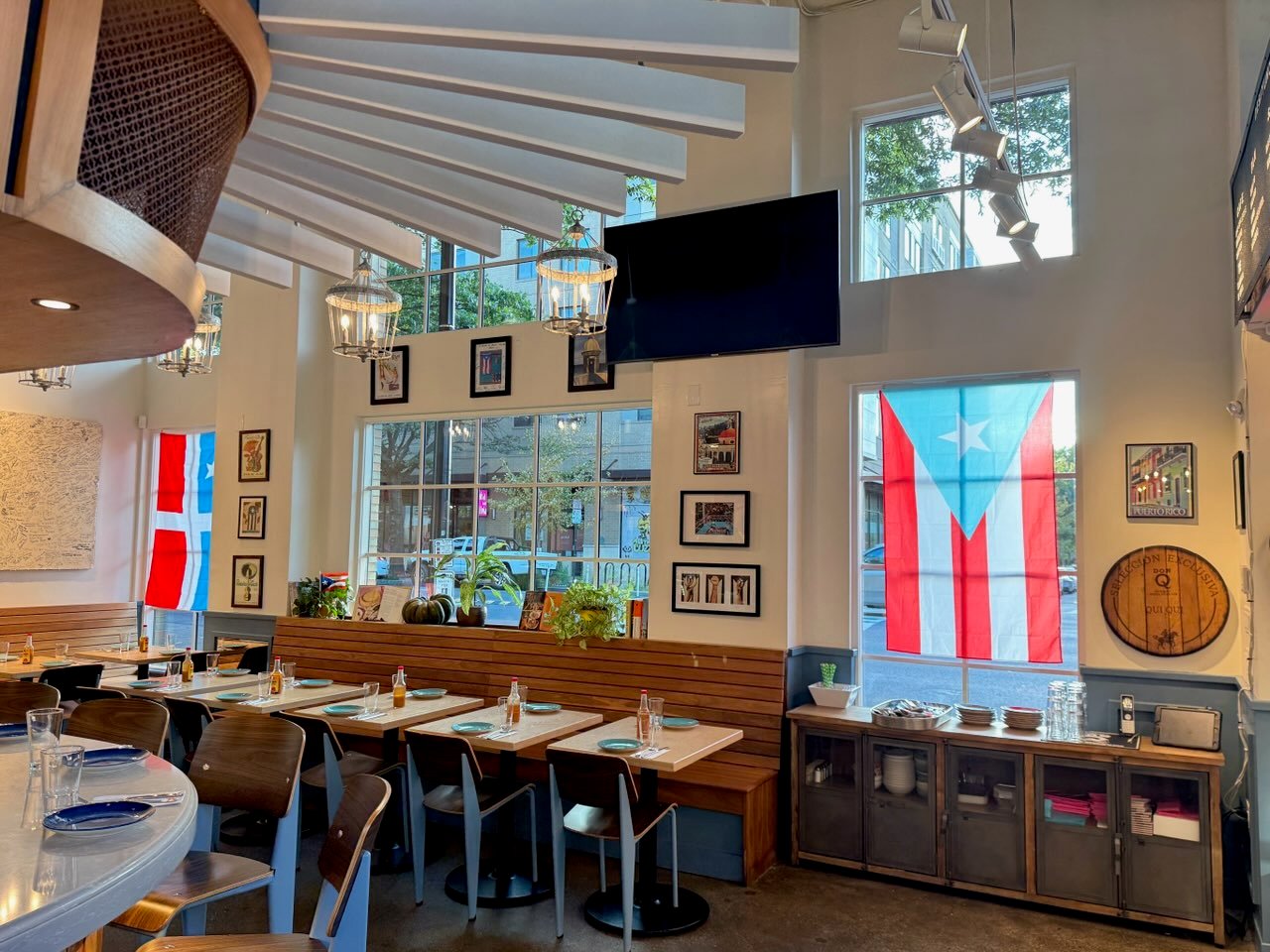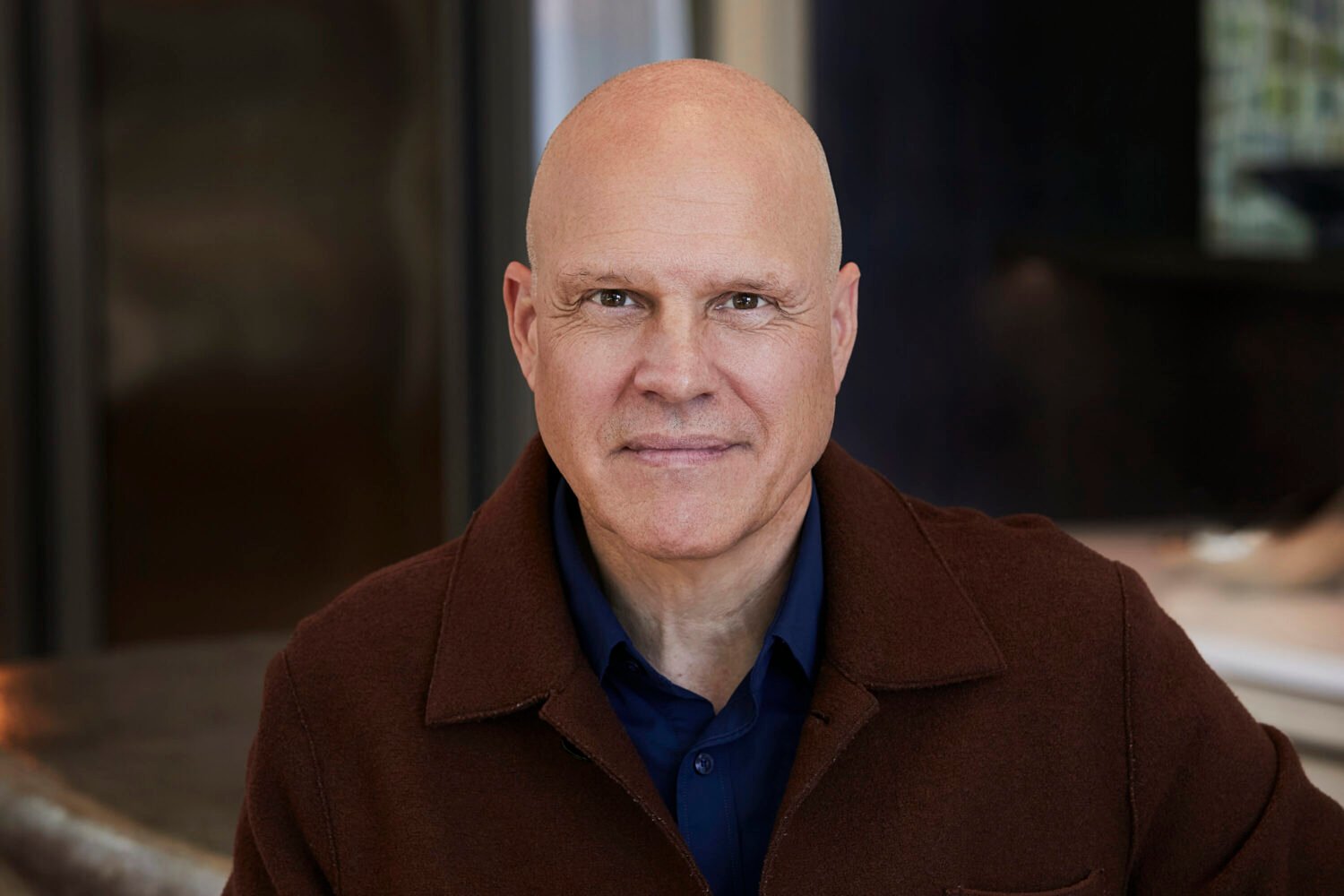The wage for tipped restaurant workers will not rise from $10 to $12 this July as planned. Instead, the DC Council voted 8 to 4 today to pause the pay bump until October following a push by Mayor Muriel Bowser to repeal Initiative 82, the DC law that incrementally eliminates the system that allows gratuities to count toward base wages. Councilmembers argued that the pause will give them time to fully consider the Mayor’s proposal and evaluate the impact of Congress’s “No Tax on Tips” legislation on wages.
“The work of the Council is never static. We have to constantly be able to make changes when needed,” says Councilmember Charles Allen, who was among a couple legislators who voted for the pause but said they would not support a full repeal. “I can’t ignore the impact of inflation, tariffs, a Trump recession, 40,000 jobs lost, and the reality that people are dining out less and spending less.”
Councilmember Brianne Nadeau, among those who voted against a pause, countered that workers “have been planning their lives around” the tipped wage increase for years. “To tell them that we are now going to delay it, it’s unfair,” she said, adding that the decision “is not respecting the will of the voters.”
When Initiative 82 passed with nearly 75 percent of the vote in 2022, the tipped wage in DC was $5.35. It’s gradually risen to $10 and is set to match the full minimum wage by 2027. Bowser’s plan, announced as part of her budget proposal, would revert the tipped wage back to $5.95. Employers would still have to ensure workers make the full minimum wage—currently $17.50—with tips.
The Mayor’s move follows the Restaurant Association Metropolitan Washington’s recent push for a repeal, alongside a handful of high-profile closures—including Haikan, Sticky Rice, and Brookland’s Finest—that cited Initiative 82 among their reasons for calling it quits.
“I talk to people all day. That’s part of my job. I hear from workers, and they are telling me that their pay has been cut since the implementation has happened. And when I hear from operators, $12 seems to be that cliff where some will have to close,” RAMW President Shawn Townsend says.
The Employment Policies Institute—another group against Initiative 82—claims DC’s full-service restaurant workers have lost $11.8 million in earnings since the ballot measure passed. They also cite data showing a 5 percent employment loss in the industry and predicting more job loss to come. “It’s a noble cause to want to boost wages. Everybody agrees with that. But if this is not the tool that is doing that, we need to figure out something else,” says EPI research director Rebekah Paxton.
However, DC’s own Budget Director countered that narrative in a new memo, which reported that the restaurant industry “remains healthy” with a growing workforce, increasing number of restaurants, and rising average wages. The report found that employment in DC’s bars and restaurants has grown more than in Virginia and Maryland since Initiative 82 took effect in May of 2023.
The battle over data continues: Paxton says when you look only at full-service restaurants and compare them specifically to the surrounding counties, DC lost more employees than its neighbors. And while Paxton claims EPI’s data is more accurate and representative in part because it relies on quarterly mandatory reported payroll data rather than earnings surveys from the Bureau of Labor and Statistics, not all councilmembers are sold. “When you look at objective data that comes from folks who don’t have an agenda, this is not an industry that is in crisis,” says Councilmember Matthew Fruman, who was against the pause.
Paul Schwalb, Executive-Secretary Treasurer of Local 25 (a pro-Initiative 82 union representing hospitality workers)—calls the DC Council’s disregard for the Budget Director’s data “Trumpian.” As he sees it, “it’s playing around with facts and pretending they don’t exist.”
Schwalb calls the DC Council’s pause “patently anti-democratic.” He notes that this is the second time voters have voiced support for eliminating the tipped wage. They previously approved a similar ballot measure that was overturned by the DC Council in 2018.
In response to calls of a repeal being undemocratic, Townsend points to a recent survey commissioned by RAMW that found that about half of DC voters didn’t “fully” understand Initiative 82 (35 percent said they understood it “somewhat” and 16 percent they understood it “a little”). The survey also found that 41 percent of voters support overturning Initiative 82.
Schwalb finds the argument that “voters didn’t understand” insulting to Washingtonians: “Essentially RAMW is saying what the Republican Party has said for a really long time, which is that the voters of DC aren’t smart enough.”
Even if the DC Council eventually votes to repeal Initiative 82, that won’t necessarily be the end of the fight. Schwalb expects a referendum to eliminate the tipped wage would come on the ballot a third time.
“This is something that the voters want to see happen and that the workers want to see happen,” Schwalb says. “And I don’t think that they’re going let the Council continue to get in their way.”



